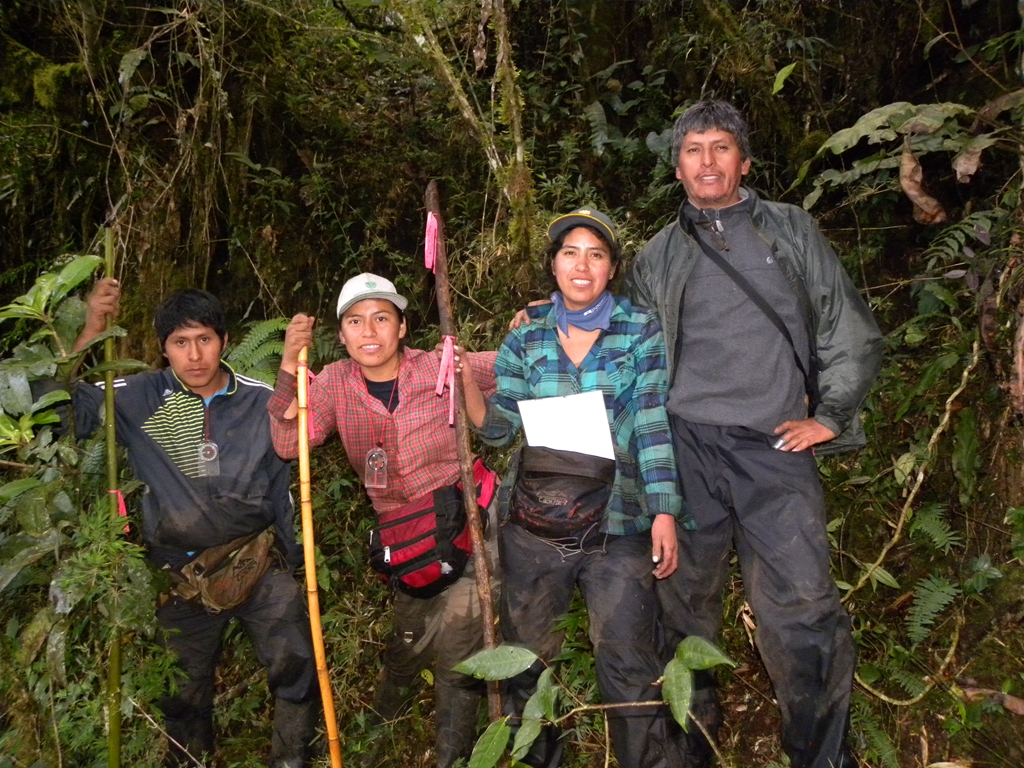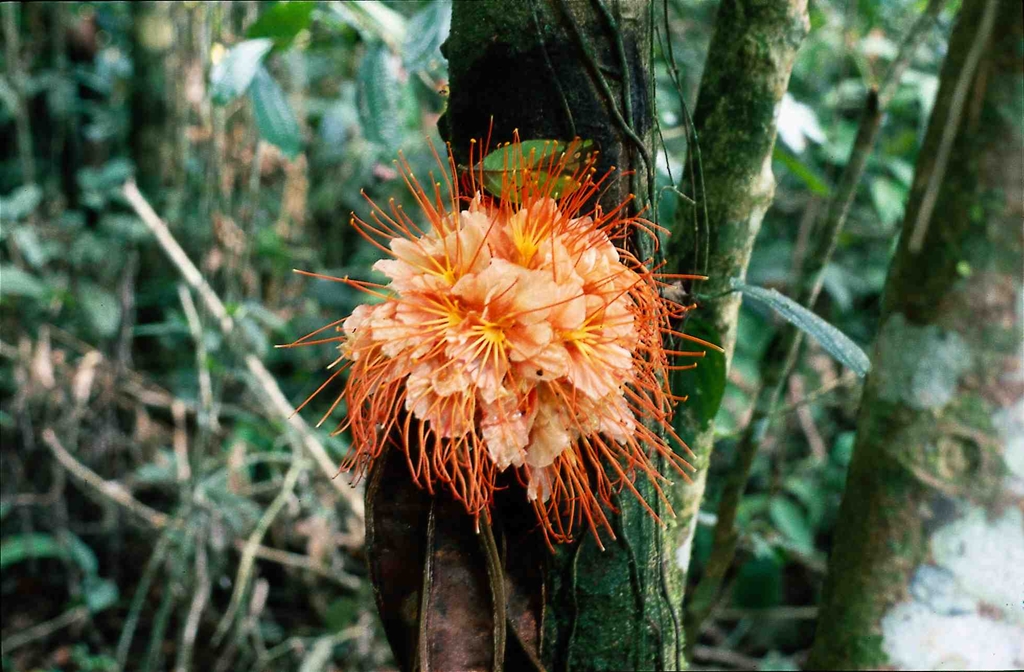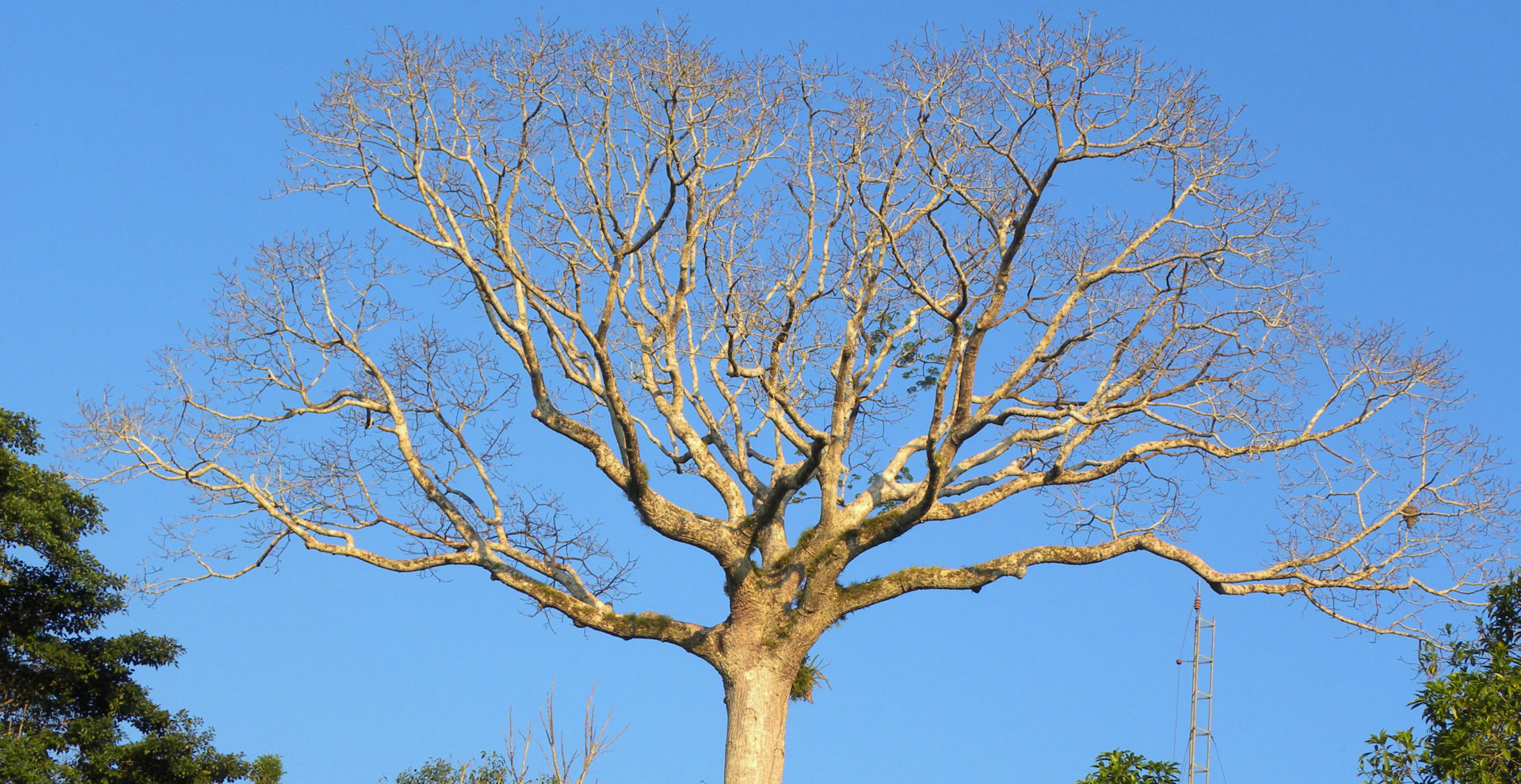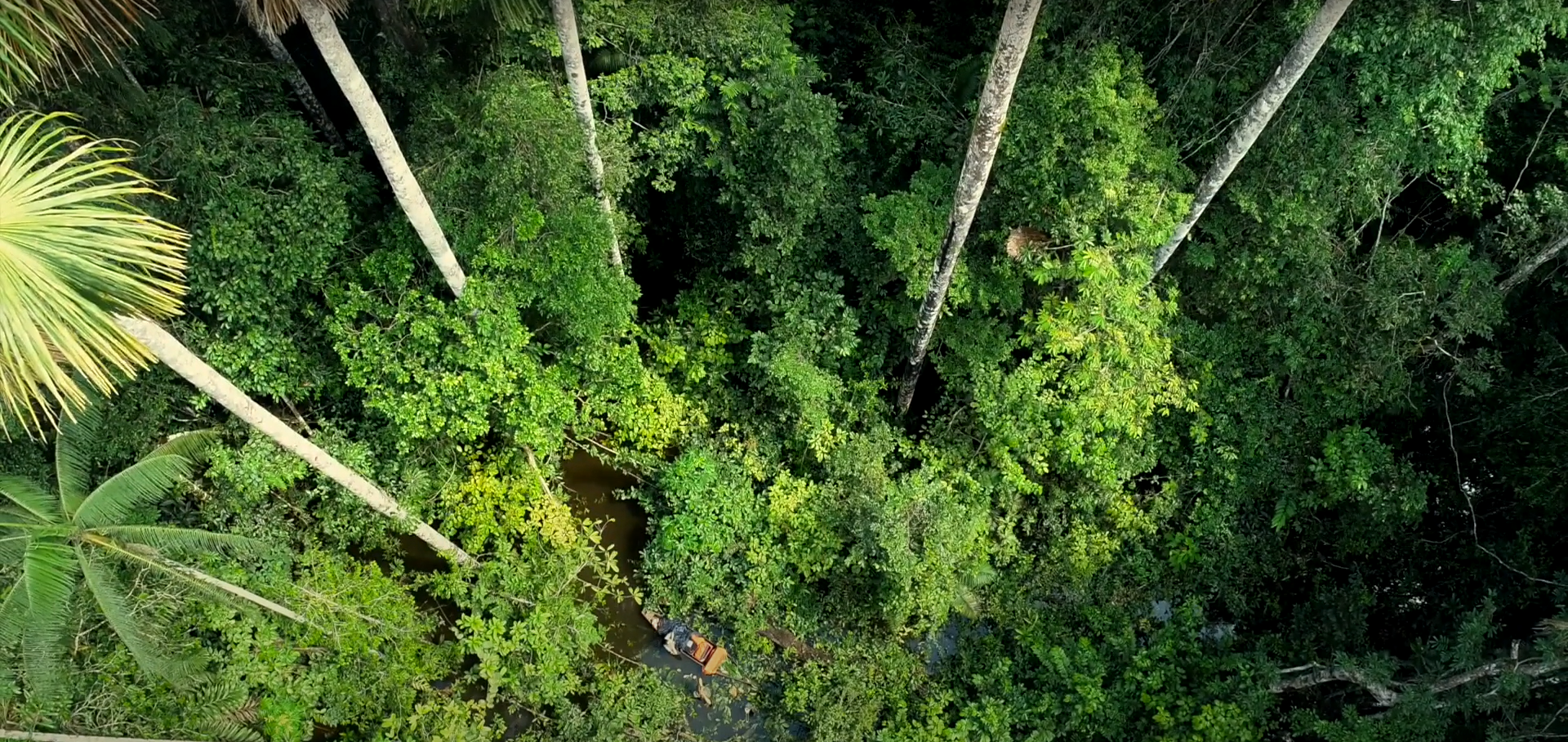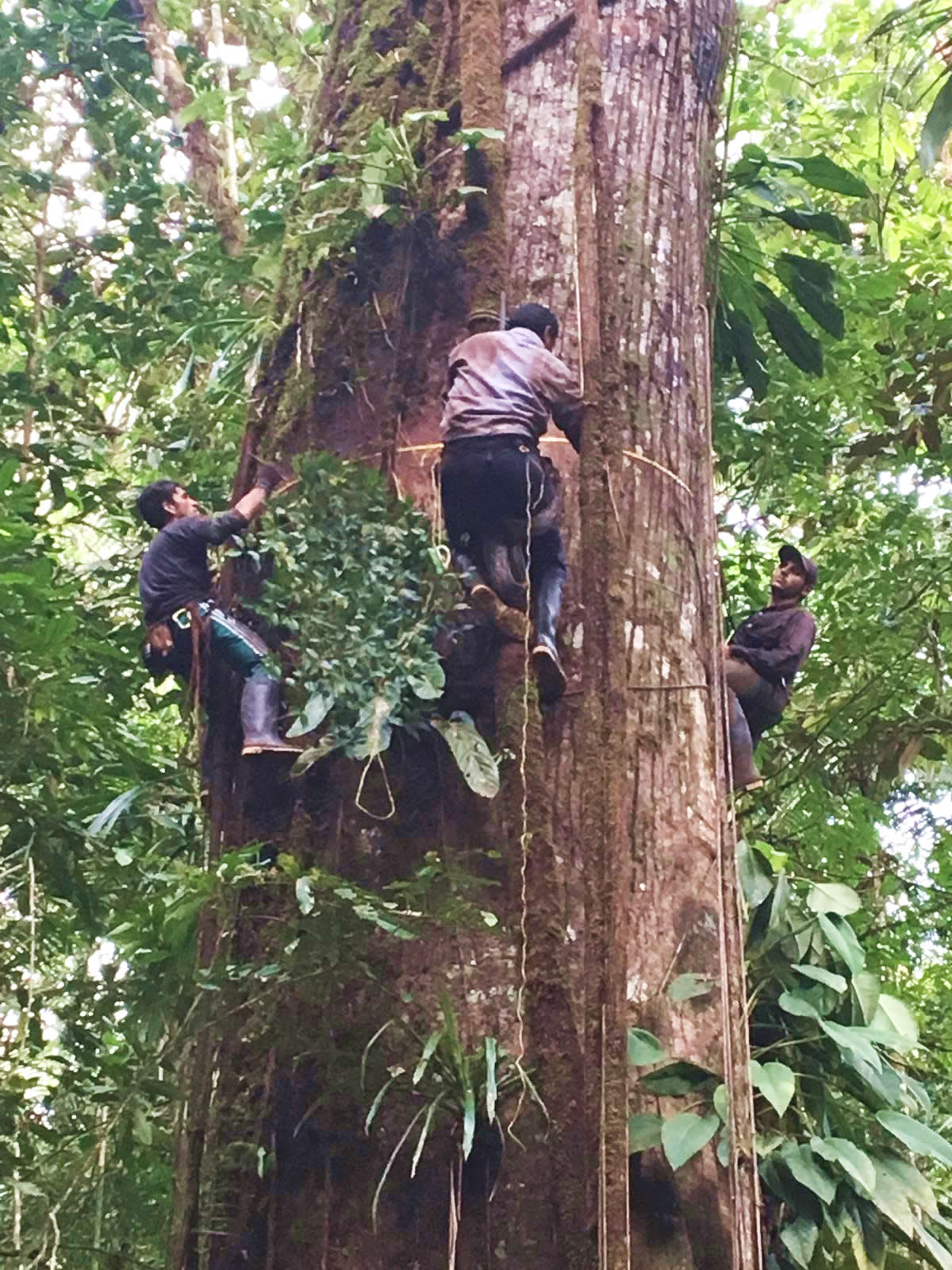-
Species Matter
Species Matter! Amazon forest species vary in drought tolerance, influencing their resilience to changing water conditions and ultimately the Amazon carbon sink. A collaboration involving 80 scientists has identified the regions of the Amazon rainforest where trees are most likely to face the greatest risk from drier conditions brought about by climate change. Published in…
-
Research reveals the importance of water table depth in forest growth and carbon modelling in the Amazon Region
The Amazon hydrological cycle is already changing due to climate change and this is expected to intensify in the future. The water availability is one of the main factors that influence plant growth and mortality, and the water table depth is an important indicator of access to groundwater. Forests that grow on shallow water tables…
-
How Can we Make Forest Data Fair? Put People – Not Data – First
Our article, with 25 tropical forest science leaders from Africa, Asia, Europe, North and South America addresses a huge challenge at the heart of global change science and policy. Writing in Nature Ecology and Evolution we report on the neglected equity issues ignored for too long.(1) Richest countries have the least tropical forest, but most scientists and economic…
-
RAINFOR plays a critical role supporting Peru’s government with their submission to the UNFCCC in 2021
RAINFOR plays a critical role supporting Peru’s government with their submission to the UNFCCC in 2021 As part of the global process to reduce carbon emissions, nations need to report their forest emissions by submitting national “Forest Reference Emission Level” (FREL). RAINFOR colleagues played a critical role supporting Peru’s government with their submission to the…
-
Taking the pulse of Earth’s tropical forests using networks of highly distributed plots
Taking the pulse of Earth’s tropical forests using networks of highly distributed plots Our article, published in Biological Conservation explains the origins of RAINFOR and ForestPlots.net, and how the power of collaboration has transformed forest research in Africa, South America and Asia. The paper, which includes 551 researchers, outlines 25 years of discovery in the carbon,…
-
Tropical forests can handle the heat, up to a point
Tropical forests face an uncertain future under climate change, but new research published in Science suggests they can continue to store large amounts of carbon in a warmer world, if countries limit greenhouse gas emissions. The world’s tropical forests store a quarter-century worth of fossil fuel emissions in their trees alone. There are fears that global heating can…
-
En Bolivia: Impacto Grande de las Parcelas Permanentes y Colaboración con Redes Internacionales
Vincent Vos nos envió un análisis interesante. La colaboración multiplica el impacto científico de los investigadores. Para UAB en Bolivia, no solo ha podido continuar las remediciones de las parcelas, pero también favoreció el uso de los datos generados en más de 20 artículos en reconocidas revistas científicas internacionales como Nature, Science y Global Change Biology.…
-
Scientists unravel how and why Amazon trees die
This huge study unravels the factors controlling tree mortality rates in Amazon forests and helps to explain why tree mortality is increasing across the Amazon basin. The capacity of the Amazon forest to store carbon in a changing climate will ultimately be determined by how fast trees die- and what kills them. Tree mortality is…
-
Rainfor data contributes to the FOS
Rainfor data contributes to the FOS, Forest Observation System, building a global reference dataset for remote sensing of forest biomass. See Schepaschenko et al (2019) The Forest Observation System, building a global reference dataset for remote sensing of forest biomass Scientific Data 6 (1), 1-11 DOI: 10.1038/s41597-019-0196-1
-
IPCC Tropical Forest Carbon Stocks
Rainfor data contributes to new IPCC default values for tropical forest carbon stocks. See: Suarez et al (2019) Estimating aboveground net biomass change for tropical and subtropical forests: Refinement of IPCC default rates using forest plot data Global Change Biology 25 (11), 3609-3624 DOI: 10.1111/gcb.14767
-
Amazon forests failing to keep up with climate change
A team of more than 100 scientists has assessed the impact of global warming on thousands of tree species across the Amazon to discover the winners and losers from 30 years of climate change. Their analysis found the effects of climate change are altering the rainforest’s composition of tree species but not quickly enough to…
-
Capacity building to support management
The project “Monitoring protected areas in Peru to Increase forest resilience to climate change (MonANPerú)” led a highly successful training course to analyse the dynamics and ecological changes in Peruvian tropical forests, at the National Agrarian University of La Molina, 25-26th July, 2018. The course was attended by 20 people, including students, researchers and specialists from…
-
Integrating forest monitoring in protected area management in Perú
he project “Monitoring protected areas in Peru to Increase forest resilience to climate change (MonANPerú)” led a series of discussion and practical training sessions in Lima, from July 23 to 26. The goal was to present progress on the project’s work to give scientific support to protected area (PA) management in Peru using data from…
-
New article led by Edgar VICUÑA MIÑANO of the Peruvian National Park Service (SERNANP)
Using our expanded network of forest plots in the Peruvian Amazon for the first time we are able to show that Peruvian Amazon protected areas act as a carbon sink: a key ecosystem service of international importance. This has been quantified as 0.52 Mg C ha-1 year-1 (1990-2017) for the intact Amazonian forest in the…
-
Experiments and observations together show how the distribution of Amazon trees predicts their tolerance to drought
Nowhere on Earth has more species than tropical forests, but climate change may now threaten thousands of trees here. How can we efficiently predict which are at risk and which are safe – without doing an impossible number of experiments? One way may be to use details of species distributions to predict their climate sensitivity.…
-
Ancient peoples shaped the Amazon rainforest
New research reveals that 85 tree species domesticated by pre-Colombian peoples remain common in forests close to ancient settlements. An international team of ecologists and social scientists, including RAINFOR researchers, has found that tree species domesticated and distributed throughout the Amazon basin by indigenous peoples prior to 1492 contributed to modern-day forests. The research, published…
-
Carbon uptake by Amazon forests matches Amazon nations’ carbon emissions
Carbon emissions across all nine Amazon nations have been fully matched by carbon absorption by mature Amazon forests since the 1980s, RAINFOR research shows. Study lead author Professor Oliver Phillips, from the University of Leeds, said: “Since 1980 roughly 430 million tonnes of carbon has been absorbed by pristine Amazon rainforest each year, which is almost…
-
Climate policies alone will not save Earth’s most diverse tropical forests
A focus on policies to conserve tropical forests for their carbon storage value may imperil some of the world’s most biologically rich tropical forests. Many countries have climate-protection policies designed to conserve tropical forests to keep their carbon locked up in trees. But a new study suggests these policies could miss some of the most…
-
Evolutionary heritage influences Amazon tree ecology
It is expected that sister lineages will be more similar to each other simply because they diverged more recently from a common ancestor. However, during evolution many other processes have been acting and driving to different extents of similarity among closely related lineages. So, rather than being purely assumed, the tendency of sister lineages having more…
-
Drought stalls tree growth and shuts down Amazon carbon sink
A recent drought completely shut down the Amazon Basin’s carbon sink, by killing trees and slowing their growth, a ground-breaking study led by researchers at the Universities of Exeter and Leeds has found. Previous research has suggested that the Amazon –the most extensive tropical forest on Earth and one of the “green lungs” of…

